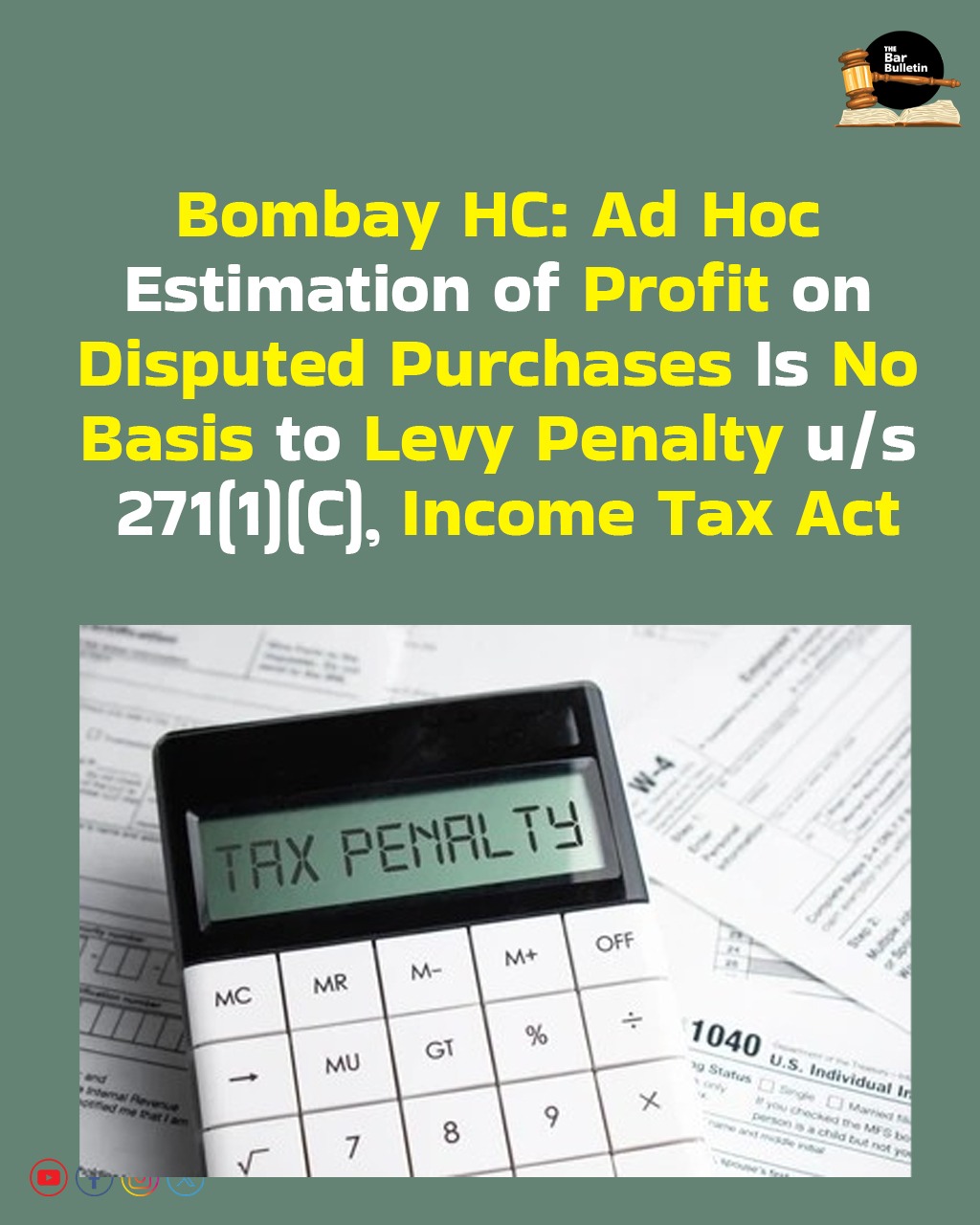The Bombay High Court recently clarified that penalty proceedings are distinct from assessment, and no penalty can be levied in the absence of clear evidence of fraud. The Court therefore deleted the entire penalty imposed on the respondent, observing that ad hoc estimation of profit on disputed purchases does not satisfy either the concealment or the inaccurate particulars threshold under Section 271(1)(c) of the Income Tax Act.
The Division Bench comprising Justice G. S. Kulkarni and Justice Aarti Sathe noted that the AO’s rejection of purchase invoices was primarily based on an internal “investigation” conducted by the department and inquiries made by the Sales Tax Department, which revealed certain entities as hawala dealers and accommodation bill providers. However, the AO failed to furnish specific evidence or documents to the respondent-taxpayer demonstrating the actual forgery or fictitious nature of the transactions.
Speaking for the Bench, Justice Kulkarni observed that while the AO accepted that actual purchases had taken place, he expressed doubt regarding the profit margins declared by the respondent. Also, the AO had arbitrarily estimated profit at 12.5% on the disputed purchases and added commission at 1%, without providing any scientific basis or comparable data to support these estimations.
The Bench emphasized that the penalty under Section 271(1)(c) requires the subjective satisfaction of the AO regarding either concealment of income or furnishing of inaccurate particulars of income. The provision demands more than mere additions to income; it requires positive evidence of deliberate concealment or conscious submission of false information. The Bench also clarified that the mere factum of additions made during assessment does not automatically justify the levy of a penalty, and the Revenue must establish with concrete evidence that the taxpayer has deliberately concealed income or furnished inaccurate particulars.
The Bench found that the respondent had agreed to the additions only “for the sake of peace of mind” rather than fighting protracted litigation. This conduct was held to negate any inference of admission of concealment or inaccuracy, as it represented a commercial decision to avoid further legal complications rather than acceptance of wrongdoing. The Bench therefore concluded that the ITAT’s decision was based on well-established legal principles and factual findings that did not warrant interference.
Briefly, in this case, the appellant, operating a photo-studio, had filed its ITR declaring Rs. 4.32 lacs, which was accepted during the original assessment. Later, the ITO reopened the assessment under Section 147, and added Rs. 7.40 lacs as bogus-purchase income, estimating the benefit on account of the difference in the purchase price, which was borne out by the bills alleging to be bogus.
The ITO also estimated profit at 12.5% on disputed purchases, treating invoices from hawala dealers as fictitious. Further, the ITO observed that the respondent must have incurred expenditure towards commission, outside the books of account, for obtaining the bogus purchase bill at the rate of 1% of the value of such bogus bills and made an addition of Rs 59,262/- towards unexplained expenditure. Additionally, the ITO also levied a penalty under Section 271(1)(c) of Rs. 2.75 lacs, which was ultimately deleted by the ITAT.
Cases Relied On:
Pr. Commissioner of Income Tax vs SVD Resins & Plastics Pvt Ltd – (2025) 474 ITR 151
Appearances:
Advocate Suresh Kumar, for the Appellant/ Revenue
Advocate Dinkle H. Hariya, for the Respondent/ Taxpayer



